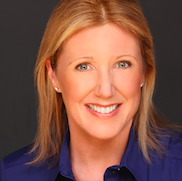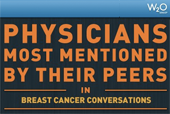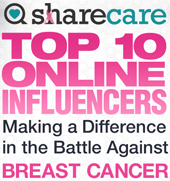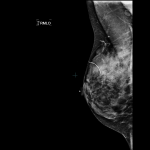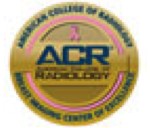Lobbying the FDA to Mandate Breast Density Notification
February 8th, 2012In November I traveled to DC to issue a statement to the FDA advisory committee regarding breast density. Several radiologists, breast cancer patients and advocates, representatives from the American College of Radiology, as well as Karen Handel from the Susan G. Komen foundation were on hand to render opinions regarding a new rule being considered by the FDA, which would mandate the inclusion of breast density information in the official mammogram report that goes to the referring doctor, and that the radiology facility providing a mammogram would directly…
Read MoreDiagnosed with Breast Cancer as a New Mother, Sharon Shares her Story
December 6th, 2011In 2003, my mom friend Sharon was relishing her role as a new mother in her early 40’s. She’d given birth to her daughter in 2001, and was now busy chasing after an adorable toddler, navigating naptimes, bottles and diapers, while working in the banking industry in Manhattan. Her husband and their brother-in-law had renovated and opened a beautiful new restaurant, and life was very exciting.
The Symptom Leading to Diagnosis
Sharon had gone for yearly mammograms since turning 40, and the test had always been reported as normal. She had no family history of breast…
Read MoreWhen Should I Have My First Mammogram?
October 4th, 2011General Guidelines
For most women, age 40 should be when you start having yearly mammograms in order to minimize your likelihood of developing advanced breast cancer (“Government Mammography Task Force vs. You”). Some doctors send their patients for a baseline mammogram at age 35, and I wouldn’t argue with that.
Family History
If you have a strong family history of breast cancer (mother or sister), start having your mammogram 10 years younger than the age that relative was diagnosed, OR at age 40, whichever is younger. For example, if your sister had breast cancer…
Read MoreGovernment Mammography Task Force Vs. You
September 26th, 2011Top 9 Reasons Why the Government Panel Recommendations on Mammography are Bad for Your Health
If the 2009 USPSTF (U.S. Preventive Services Task Force) recommendations are followed, as many as 20% of breast cancer deaths will be in women who could have been saved. The USPSTF knew this when they issued their report.
1. The Task Force’s own data shows that the most lives are saved by starting mammography screening at age 40, but they chose to ignore that data. They made a value judgment as to how much a woman’s life is worth. The science clearly shows that starting annual …
Read MoreDon’t Be Shy
September 16th, 2011Breast self-examination (BSE) is one of our key weapons in the arsenal to detect breast cancer as early as possible. It only takes a few minutes a month, yet a woman can potentially save her own life by taking the time to do it. For reasons that have nothing to do with science or common sense, the government panel known as the U.S. Preventive Services Task Force, which did not include even one doctor specializing in breast cancer as a panelist, recommends AGAINST women doing self-examinations. See my take on this HERE.
BSE is especially important if you are younger…
Read More
